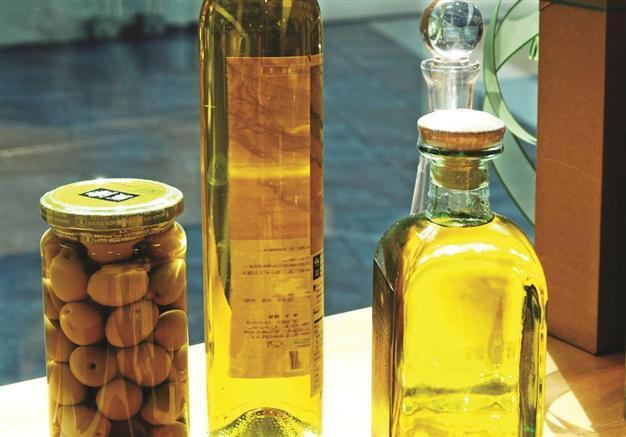Turkish olive oil exports boom amid Spain drought
ANKARA - Anadolu Agency

Turkey’s olive oil exports have reached $333 million in eight months. AA photo
Turkey raised its olive and olive oil exports by 172 percent in the first eight months of the year thanks to drought in Spain, an agriculture sector representative has said. But he also warned that Turkey needed to create brands if it wanted to maintain this success.“Our olive oil sector, which has entered new markets and raised its exports by two-digit percentages to several countries, because of the drought in Spain should seek ways to remain permanent in these markets,” Turkish Agricultural Chambers Union (TZOB) President Şemsi Bayraktar said.
Turkey, the fourth largest olive oil producer, jumped its exports to $333 million from $122.2 million with the 172 percent rise between January and August, according to data announced by the Turkish Exporters’ Association (TİM).
The olive oil season began on Nov. 1, 2012, and Bayraktar said the nine-month results supported the prediction that the exports would surpass $400 million by Oct. 31, 2013, when the season ends. Spain’s olive oil production in was adversely affected by the country’s struggle with poor crop yields, which dropped to around one-third, paving the way for Turkish exporters to multiply their sales to countries such as Italy, Austria, the U.S. and New Zealand.
However, Bayraktar said only 30 percent of Turkish olive oils were branded which hampered the popularity and credibility of the Turkish goods in these new markets. “We still sell 70 percent of our products without brands. We have to constantly provide goods in newly entered markets. We could face the same thing that Spain is experiencing today. But countries like Spain and Italy can buy our unbranded olive oil, case it and sell like it’s their own product,” he said. The union head also noted that the sector was still facing problems in boosting domestic demand and competing with the European rivals, which are benefiting from the union’s incentives.
















